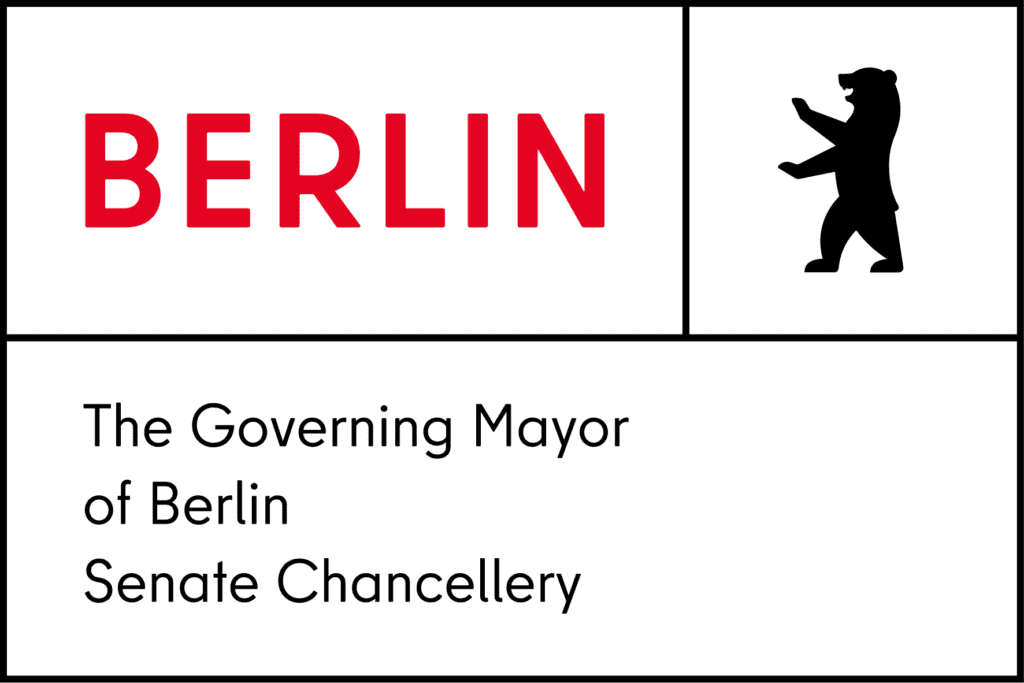The implementation phase of the Smart City Berlin model project is already underway: earlier this year, workshops were held on three out of a total of five pilot projects. Just as in the current strategy development phase, the public is involved in the elaboration and implementation phase of the pilot projects, too. The outcomes of the various participation formats are to be included in the relevant project descriptions. Additional public participation formats are planned.
Collecting, evaluating, structuring, discussing and finalizing ideas – these were the initial building blocks of the participatory process for developing Berlin’s new Smart City strategy as early as 2021 as part of the “Smart Cities Model Projects” program funded by the BMWSB and KfW. Parallel to this, the implementation phase started at the beginning of 2022. This kicked off with the first workshops in January and February on three out of five Berlin pilot projects being run under the Berlin model project entitled Berlin lebenswert smart. At these events moderated by CityLAB Berlin, actors from administration, business, academia and civil society met at a virtual round table. Requirements from different perspectives were discussed prior to the launch of the individual projects. The outcomes will be incorporated in the final project descriptions and the project work.
Smart Water gets underway
Public participation in the project Smart Water – Modellierung und Governance (‘Smart Water – Modeling and Governance’) kicked off on January 13: the central topic of discussion at the workshop was to identify possible blind spots in the project proposal. In the first part of the two-hour workshop, Dr Angela Jain of the Senate Chancellery – who is responsible for steering the pilot projects – explained the framework and the requirements of the funding application. In addition, project partners presented the preliminary project outline so as to establish a shared knowledge base for all participants. In the subsequent interactive part, small groups discussed individual project modules. The outcomes were evaluated by project partners and incorporated in the project descriptions. Two further workshops on the pilot projects Smarte Stadtplätze gestalten und betreiben – Hardenbergplatz (‘Designing and operating smart city squares – Hardenbergplatz’ and Data Governance & Datengetriebene Verwaltung (‘Data governance and data-driven administration’) were also held as public participation formats in January and February.

Openness generates trust
Participants found it particularly helpful to be able to combine different perspectives at a central virtual table. The networking of the actors involved provides a sound basis on which the project can progress. For this reason, further participation formats will continue to be integral to ongoing implementation of the pilot projects. There was also discussion of who would like to get involved moving forward and in what way. “The projects are designed to address existing needs. In order to be able to do this effectively, we’re creating transparency and openness through these participation formats – and the response has been very positive,” said Dr Angela Jain. “By critically scrutinizing project approaches from different perspectives, we’re able to strengthen needs orientation and underpin project legitimacy.”
Smart CitySmart City pilot projects: learning from practice
However, the five Berlin pilot projects are not just geared towards addressing a specific issue and finding an innovative solution for it. Their mission is also to try out new methods and share what they have learned. This very much includes the idea of enabling participation and continuously improving it. The Smart City pilot projects can serve as a model for future Smart City projects, as has already been developed and set down in the Strategic Framework of the Berlin Smart City strategy – in which the public were also closely involved.
The knowledge gained from implementing the pilot projects is to be fed back into Berlin’s Smart City strategy, thereby making it a genuine learning process. Solutions to problems are developed autonomously within the framework of the pilot projects. In addition, ideas will be tested from the Strategic Framework of the Berlin Smart City Strategy adopted in August 2021 and developed in the first phase of the process.
More participation workshops
Two more participation workshops in the run-up to the pilot projects are planned in the near future: Bürgerhaushalt und Smarte Partizipation (‘Participatory budgeting and smart participation’ and Daten in Alltag und Krise – Kiezbox 2.0 (‘Data in day-to-day routine and crisis – Kiezbox 2.0’). The exact dates have not yet been set, however.
Stakeholders who would like to contribute their expertise and user perspective to the discussion can express their interest in participating in a workshop by sending an e-mail to: partizipation@citylab-berlin.org.
You will find the Smart City Berlin public knowledge repository here.
This article was also posted on smart-city-berlin.de.
The Berlin Smart City strategy process is being conducted by CityLAB Berlin, a project run by Technologiestiftung Berlin on behalf of the Berlin Senate Chancellery. The process is part of the model project Berlin lebenswert smart, funded by the Federal Ministry for Housing, Urban Development and Building, and the KfW.
